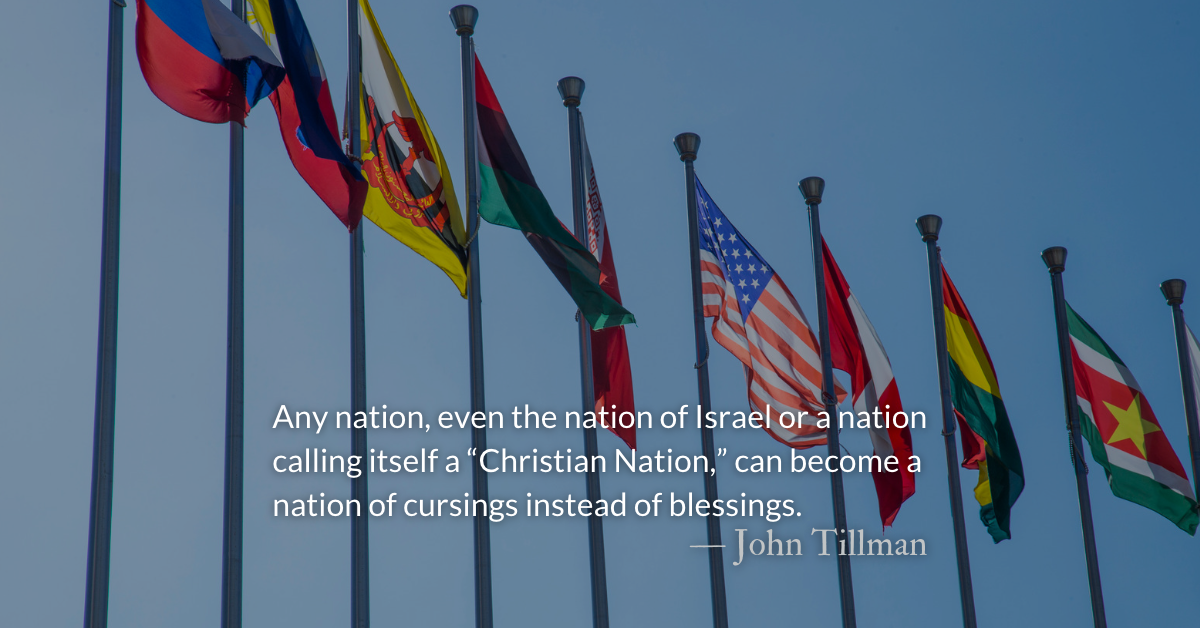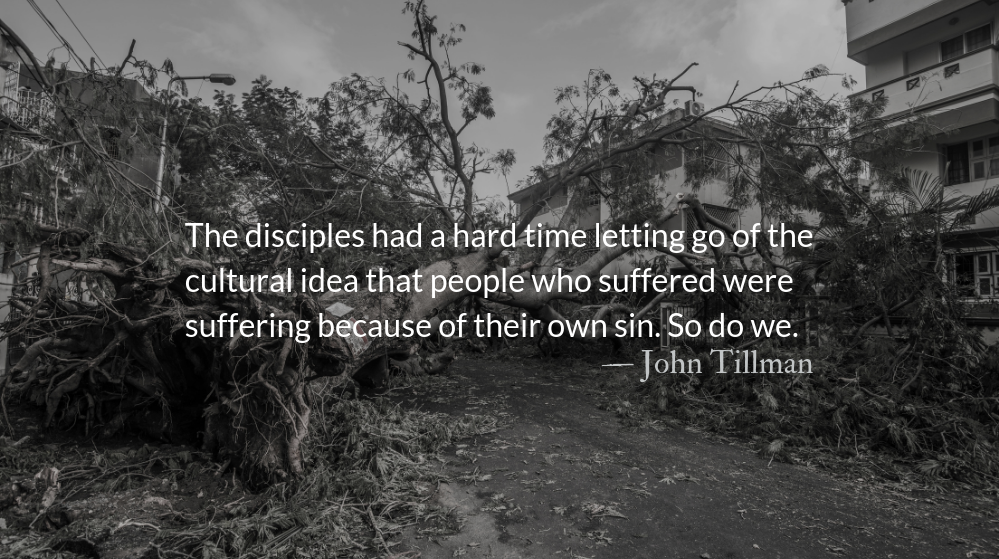Scripture Focus: Exodus 10.28-29
28 Pharaoh said to Moses, “Get out of my sight! Make sure you do not appear before me again! The day you see my face you will die.”
29 “Just as you say,” Moses replied. “I will never appear before you again.”
Reflection: Blessed are the Troublemakers
By John Tillman
The Pharaoh of Joseph’s day had been personally blessed and prayed for by Israel himself. While Israel’s children lived there, Egypt enjoyed the blessings of God and was a channel of God’s blessing to the world.
Any nation that simply allows God’s people to flourish can be so blessed. Even the evil nations of Assyria and Babylon, when they acknowledged the God of the Hebrews among them, were blessed. But any nation, even the nation of Israel or a nation calling itself a “Christian Nation,” can become a nation of cursings instead of blessings.
Moses’s Pharaoh treated him like an irritant. From a certain perspective, it’s understandable. Moses was demanding. He inconvenienced the privileged life to which Egypt was accustomed. He destroyed the peace. He disrupted the economy. He upended the established order. Pharaoh considered him a troublemaker.
But Moses was not a troublemaker in Egypt any more than Elijah was a troublemaker in Ahab’s Israel. (1 Kings 18.16-18) In both countries, prophets brought correction through words, demands, and demonstrations of power. It was the leaders who were the troublemakers and made decisions that led toward certain disasters.
Reading the progression of the plagues and the responses of Pharaoh is like watching a classic tragedy, like Macbeth. He makes horrible choice after choice after choice. We don’t understand how, in the face of so much evidence of God’s power, Pharaoh could still stiffen his neck, harden his heart, and refuse to give in.
Every time we have “trouble” it doesn’t mean God is displeased with us. Sometimes, as Moses did, we will experience “good trouble” when we are doing the right thing. But it is always good to pause and consider if we are “going Pharaoh.”
Moses was a visitation of grace, an opportunity for change. Pharaoh rejected it. Even his leaders realized that Egypt was falling to ruin but he wouldn’t give in to them either. (Exodus 10.7)
We don’t have to look far in the news headlines to see autocratic leaders, bringing their countries to ruin by stubbornly refusing to abandon foolish directions. We don’t have to look far in our own hearts to find moments we resist or resent calls for change that God puts in our path.
Blessed are the troublemakers who demand justice. We should have the humility not to treat them as irritants, but consider whether the source of trouble might instead be our own hearts.
Divine Hours Prayer: The Small Verse
Open, Lord, my eyes that I may see.
Open, Lord, my ears that I may hear.
Open, Lord, my heart and my mind that I may understand.
So shall I turn to you and be healed.
Today’s Readings
Exodus 10 (Listen 4:44)
Matthew 21 (Listen 7:10)
Read more about The Ram and the Cornerstone
He rammed his teaching into the foundations of the religious leaders’ security and pride, knowing what their violent response would be.
Read more about Ahab and David
Rather than the friendly relationship David had with God and his prophets, Ahab considers Elijah his “enemy.”








